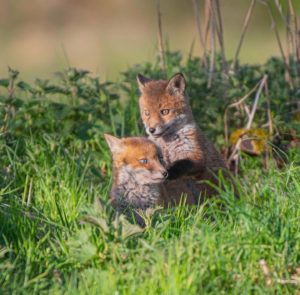Biodiversity
Biodiversity at Bionua
All pictures featured are sourced from our sites.

Our Commitment to Natural Resources
At Bionua, we understand that our business and the planet depend on healthy ecosystems. To ensure resilience and growth for both, restoring and protecting these ecosystems is essential.

Embracing a Nature Positive Approach
A nature positive business is one that generates more benefits for nature than adverse impacts. At Bionua, we integrate biodiversity protection into our sustainability practices, processes, and policies. Our goal is to safeguard biodiversity and ecosystem services throughout our value chains while maintaining high environmental standards within our operations.

Supply Chain Responsibility
We prioritize biodiversity in our supply chain management. We are committed to preventing deforestation and demand the same from our suppliers. We actively avoid converting habitats with valuable biodiversity for biomass production, ensuring transparency and accountability throughout our industry.

Nature Positive Value Chain
Our nature positive value chain approach focuses on avoiding and minimizing biodiversity impacts. Any negative impacts are restored and compensated for within our value chain or elsewhere, ensuring that our business activities create more benefits than harm to ecosystems.

Achieving Net Positive Impact
Net Positive Impact (NPI) or ‘net gain’ refers to a state where positive biodiversity outcomes exceed any losses due to business activities. This requires not only avoiding and minimizing negative impacts but also engaging in additional positive actions to enhance biodiversity.
Biodiversity Best Practices for Sustainable Businesses
To drive meaningful change, we urge business leaders to thoroughly understand and meticulously evaluate their company's impact on nature throughout their value and supply chains. This in-depth assessment will inform and guide effective biodiversity initiatives.
Eight-Step Action Plan for Biodiversity Enhancement:
- Map Your Environmental Footprint: Conduct a detailed analysis of how your direct operations affect biodiversity.
- Evaluate Supplier Practices: Assess the environmental impact of your suppliers and ensure they adhere to sustainable practices.
- Optimize Resource Use: Implement strategies to reduce resource consumption and waste in your production processes.
- Enhance Product Design: Develop products with minimal environmental impact, focusing on sustainable materials and lifecycle management.
- Promote Circular Economy: Encourage recycling and reusing materials to minimize waste and resource extraction.
- Set Clear Biodiversity Goals: Establish specific, measurable biodiversity targets and allocate necessary budgets for achieving them.
- Engage and Educate Employees: Provide training and resources to employees to foster a culture of sustainability and biodiversity awareness.
- Communicate and Collaborate: Share your biodiversity efforts and achievements with stakeholders and collaborate with other organizations to amplify impact.
By implementing these best practices, businesses can effectively contribute to biodiversity conservation and promote a sustainable future.
Biodiversity Loss by Numbers:

Vertebrate Wildlife Populations Decline

Bird Species in Decline

Plants Threatened with Extinction

World's Intact Forests

Tropical Rainforests Coverage

